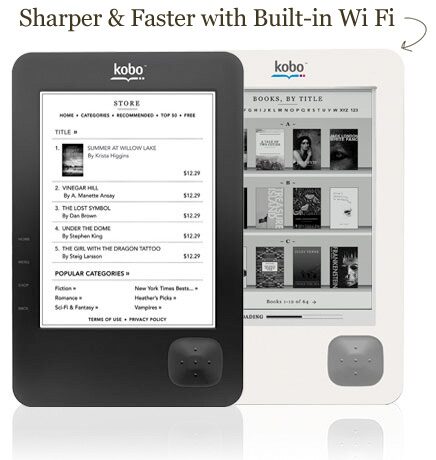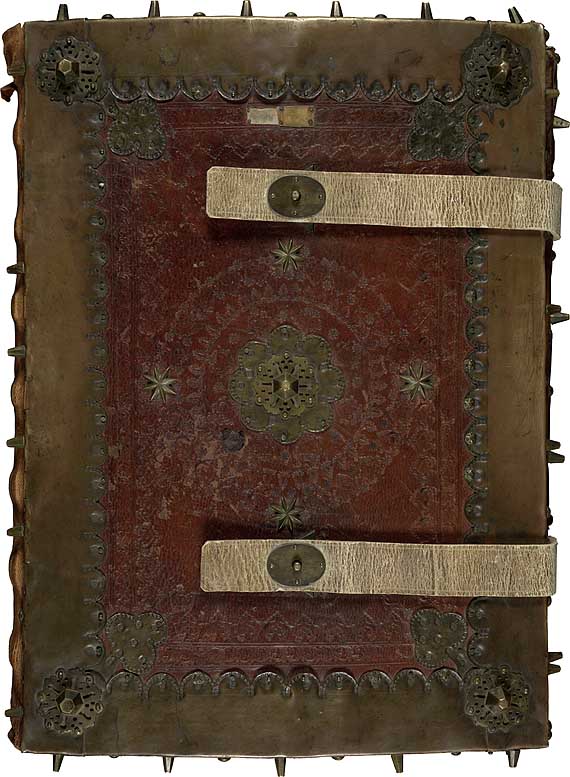In the heart of digital books
I received a wireless Kobo reader for Christmas. Have to say, quite emphatically, I’m ecstatic about this gift from my husband. I can’t think of a single piece of new technology I’ve been this excited about, and impressed by, in a very, very long time.
The hardware itself is quite small and thin, smaller and thinner than I’d originally thought, although it should be noted I do have problems with spacial relationships. Still, it sits in the hand easily, especially my arthritic hands. The screen, although small, is a perfect pocketbook size, and easy on the tired, middle-aged eyes that are much abused by too much computer time.
As with any new technology there is a learning curve, but I’m delighted to say the curve is more of a small bump than a steep incline, and is quite intuitive so that simulating the printed book reading experience is quite accurate. I spent a delightful afternoon yesterday lying on the sofa, reading, and a wonderful bedtime experience reading. No aching hands. No figuring out how to prop a heavy, pointy book on pillow, duvet or body part.
I love the fact the Kobo comes with a pre-loaded classical library of 100 books. It is an impressive array, and although I’ve read the great majority of that list, I will very much relish re-reading in this new format, and discovering those few texts I haven’t ventured into previously.
Purchasing eBooks and loading them on the Kobo proved very simple, far moreso than I’d suspected. And loading eBooks onto the reader from Adobe Digital Editions, already existing on my computer, proved so simple it was laughable. In fact, as I recall, I did laugh with delight.
So far, the experience is all positive. And because of that I can see how it is digital readers will slowly, but surely, overtake the purchase of print books as more and more people acquire the technology. I can even see our own library transforming, which is quite a statement to make, given we have built an entire room around the hundreds of books we own. But, just as our entire music collection now exists in a stainless steel contraption just a little larger than a credit card, I can see our future library existing on a few, pocketable sim cards capable of holding thousands of books. To my mind, that’s something akin to a fantasy tale, like the bag of holding out of Dungeons and Dragons. It sparks my imagination and interest.
So, is the print book dead? No. But I can foresee a day when the print book again becomes an art-form, just as it was in the age of the scriptorium, while the majority of the text we read exists only as a form of digital information.


As a sociologist, I am interested in the implications of the Kobo reader coming preloaded with a hundred classics — presumably the focus is on classics because longer under copyright — but who gets to decide which 100 books are The hundred books that should be — quite literally here — in everyone's library?
I doubt that I would have much argument with any of the titles included. Not having seen the list, I'm still prepared to bet it represents a pretty wide consensus of what academics and the educated would generally agree are pretty good books. No, I'm more concerned with the omissions. To take just one example, how much Canadian content is there on that list? Again, I haven't seen the list, and the Kobo may indeed have a fine Canadian component, but how many African or Asian classics are included? How broadly representative of various genres, subcultures, periods, genders, languages, religions, paradigms,etc., etc., is it? Because determining the 100 books everybody has read is an important determinate of our shared culture.
Of course, it is probably less important than TV ratings, so given the general trend in the culture to non-reading, I'm likely worrying over the wrong stuff.Truth is, how many non writers will actually read those 100 books?
oops I meant to say of course "No longer under copyright"
I'd have to say the 100 free books are heavily weighted toward English classical literature, although there is a smattering of Canadian, Asian, African and other world literature.
And will the majority of people read these classics? I doubt it. Just look at the BBC's by now famous list of 100 books, and how many people can say they've read even half.
I'd have to say of those 100 books on the Kobo, I've previously read easily 80 of them. There are some, however, like Sun Tzu's The Art of War I will visit for the first time.
Whatever the origin of these works of literature, I'd have to say it's an impressive and excellent introduction to classical literature for anyone.